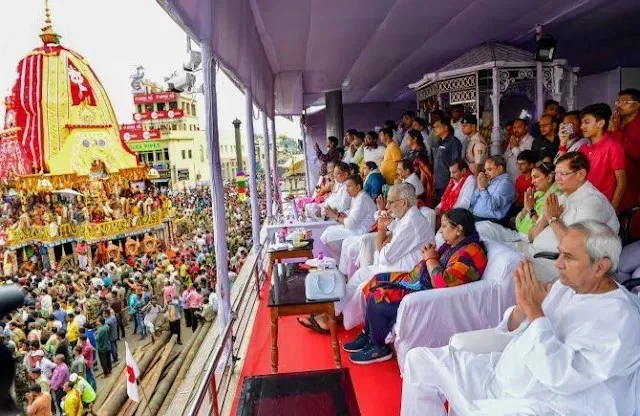
BHUNESHWAR– In a surprising allocation of resources, the BJD-led Government of Odisha, under the leadership of Chief Minister Naveen Patnaik, has come under scrutiny for allocating a staggering ₹1950 crore rupees in the ‘People’s Budget 2022-2023’ towards religious and cultural places. This marks a significant 97% budget increase for such expenditures, raising concerns about the government’s priorities.
The substantial financial commitment includes a whopping ₹4,224.22 crore for the Shree Mandir Parikrama Project, with additional funds earmarked for its promotion and transportation. Reports suggest that over ₹2000 crores were spent in 2021 alone on various temple renovations under the guise of tourism development.
Critics argue that this heavy focus on religious spending reflects a skewed set of priorities by the state government. Despite only modest increases in the budget for education and health sectors, the allocation for religious projects has seen a disproportionate surge. This move has prompted concerns about the direction of governance and democratic development in Odisha.
Opponents contend that these expenditures symbolize a misalignment of resources, diverting attention from crucial issues such as education, healthcare, and unemployment. The government’s decision to prioritize religious projects over essential public services is seen as a potential catalyst for the growth of Hindutva politics in the state.
Experts argue that Odisha’s historically inclusive and liberal society is at risk as the government focuses on short-term electoral gains through religious expenditures. The lack of attention to critical areas such as education and health infrastructure raises questions about the state’s commitment to human development.
The government’s actions are criticized for concealing the real issues facing the state, with populist religious expenditures being viewed as wasteful tools of electoral propaganda. Critics suggest that these expenditures, while effective in garnering votes, do not address the underlying challenges of corruption, exploitation, inequality, and the neglect of social justice.
Naveen Patnaik’s government is accused of contributing to the monetization of society, majoritarianism, and the neglect of citizenship rights. Despite claims of secularism, Patnaik’s policies appear to prioritize religious expenditure over human development, leading to what is being termed a “development disgrace.”
As the public grapples with economic struggles, unemployment, and inadequate public services, the call for a politics based on mass movements gains traction. Advocates argue that only a shift towards policies focused on secularism, progress, and social justice can reverse the perceived development disgrace in Odisha and empower its citizens.
